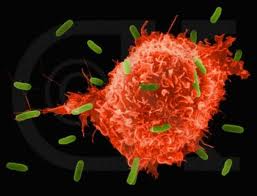Chemotherapy during pregnancy has long
been thought of as unsafe and the drugs used for treatment can harm
the child. However, these days the researchers are trying to collect
a comprehensive data to show if this conclusion could be wrong. The
researchers from across the globe have been closely observing kids
whose mothers received chemotherapy during pregnancy.
Most of the researches revealed that
kids whose mothers receive chemotherapy treatment when they were
expecting showed normal development. They did not have suffer from
any long term harm because of the exposure of the drugs. When a
pregnant woman is diagnosed with cancer, the family is faced with a
dilemma of whether to take chemotherapy treatment or not.
The best way to decide this would be to
check the stage of cancer in the body of the expecting mother. If the
cancer is left untreated, it might spread inside the body of the
patient. Although the doctors are willing to give chemotherapy drug
treatment to such patients, they are more concerned if fetus is in
the first trimester. They suspect that there are chances that this
could damage their heart and brain. However, if the pregnancy has
gone beyond the first trimester, then the chances of damage to the
baby become less.[Get information here in brief : http://www.ecancerchemotherapy.com/ ]
Some chemotherapy side effects may
cause the baby to be born prematurely. This might be the reason for
such babies to have lesser IQs later in life. They are also known to
have problem in their thinking and cognitive skills. So they came to
the conclusion that chemotherapy side effects in pregnant women might
cause premature birth and this could lead to problems later in life.
Before patients undergo chemotherapy treatment, they are asked to postpone their plans of conceiving. In
such cases, the drug can harm the growth of the sperms and can damage
the eggs. So even if the egg gets fertilized, it may not lead to the
birth of a healthy child.
Thus, when chemotherapy during
pregnancy has to be done, the doctors first consider the health of
the patient and put her health before the child's safety. Most of the
researches done so far have been done on patients with breast cancer
and more research is still going on to establish if chemotherapy
during pregnancy is safe.






